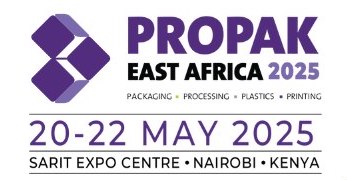More than ever before, the use of Artificial Intelligence (AI) in driving clients’ engagement from data gathered is constantly on the increase, which is why Print Service Providers (PSPs) need to be proactive in leveraging this once futuristic concept to drive growth in their businesses. This SPECIAL FEATURE ARTICLE by Erwin Busselot, Director Business Innovation & Solutions, Ricoh Graphic Communications, shows how:
What is Artificial Intelligence’s role in the printing industry? For many, it is limited to powering chatbots on their websites, automating order intake, managing prepress tasks, optimising some press settings, or informing predictive maintenance. All very useful, of course.
47% of organisations use basic AI tools like ChatGPT and Google, according to Keypoint Intelligence. Just 13% reported a deeper company-wide use of the technology.
Keypoint Intelligence’s research went on to show operations can use AI to not only optimise existing processes, but to innovate and create new opportunities. For example, AI can help anticipate market trends, enhance supply chains, and deliver highly personalised products or services based on customer behaviour and preferences.
AI-driven decision-making can also enhance strategic planning by uncovering insights that may go unnoticed through human analysis alone.
Those operations that adopt advanced AI applications can revolutionise how they operate and engage with customers, too. They can power predictive analytics, personalised customer experiences, and even dynamic decision-making systems that continuously learn and adapt.

© Medium
Marketers across many industries are already capitalising on what the technology can deliver:
- 55% that use AI rely on it for text-based content creation. Additionally, 38% use AI for multimedia, including videos, images, and audio.
- 60% believe AI helps them personalise the customer experience.
- 51% apply AI to email marketing and newsletter platforms.
Print Service Providers (PSPs) can also incorporate AI possibilities into their services.
Those with in-house design departments can enhance creativity and streamline the design process with tools that provide automatic suggestions regarding layouts, colour schemes, and even typography, based on the main body of work’s content and context. They can quickly and automatically enhance images, correct colours, remove backgrounds, and upscale resolutions without losing quality.
With campaign data analysis, PSPs can help their clients produce highly customised designs that resonate well with the target audience. They can also review past orders and interactions to help predict future needs and better tailor marketing. This can help clients successfully manage their campaigns as well as develop and deliver more impactful customer engagement.
Artificial Intelligence provides a powerful toolkit to optimise current processes and push the boundaries of creativity, efficiency, and client engagement.
Internally, it can help PSPs drive innovation and stand out in an increasingly competitive market by working smarter. Externally, it can allow stronger relationships to be created with clients by using up-to-the-minute data to inform highly targeted, intelligent personalisation, which elevates their customer communications activities.

About ERWIN BUSSELOT
Passionate about the combination of high-tech and marketing and more specifically the effect of digitalisation of the graphic arts workflow on the printing and communication industry, Erwin Busselot has always had a track record of performance and achievement. From being the former PR Manager and Marketing Director Digital Printing EAMER at Agfa Graphics and Kodak, respectively, he is today Ricoh Europe’s Director of Business Innovation & Solutions. With a personal motto: Work hard, Play hard, his specialties include: G2Market activities, marketing communications, sales productivity, direct marketing, training, strategy, and planning.

























